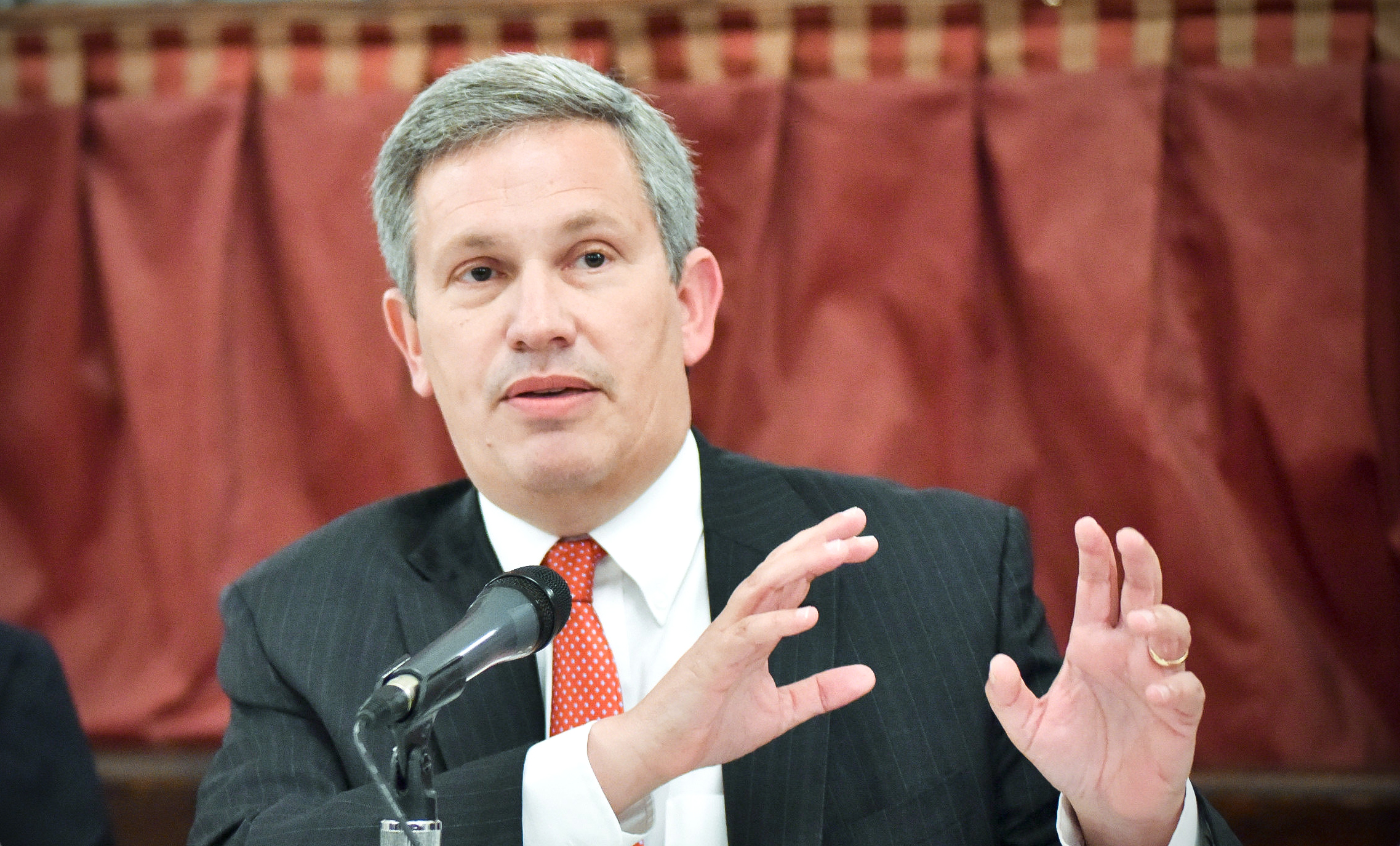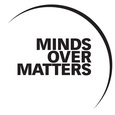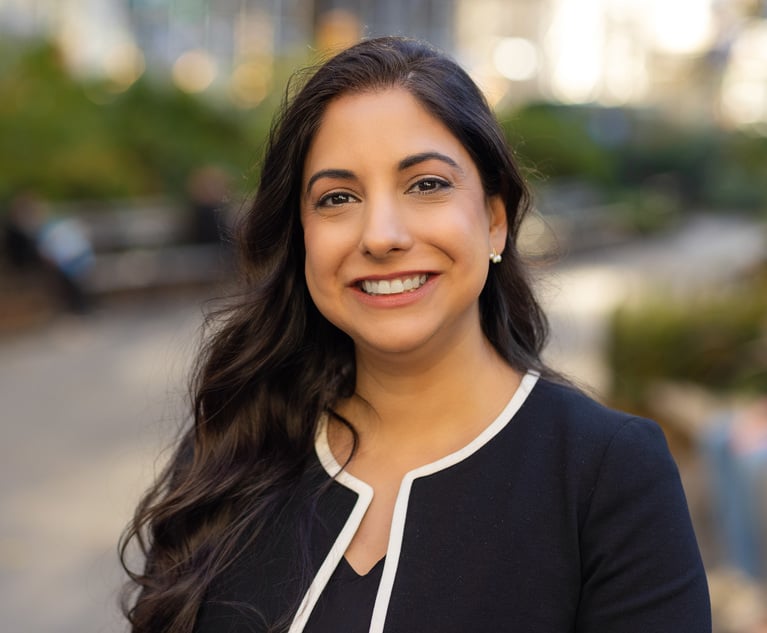Momentum Builds for Allowing NY Bar Applicants to Keep Mental Health History Secret
"Time in law school is marked by extreme stress, anxiety, overwhelming expectations and financial uncertainty," New York Bar Association President Henry Greenberg said in a call to action. "Many students admit they are not seeking help because they are concerned that doing so will negatively impact their bar admission."
June 10, 2019 at 05:00 AM
5 minute read
 Henry M. Greenberg, president of the New York State Bar Association. (Photo: David Handschuh/ALM)
Henry M. Greenberg, president of the New York State Bar Association. (Photo: David Handschuh/ALM)
 The new president of the New York State Bar Association is announcing today that he's launching a blue-ribbon committee to determine if the state should remove questions about mental health disorders from applications for the bar.
The new president of the New York State Bar Association is announcing today that he's launching a blue-ribbon committee to determine if the state should remove questions about mental health disorders from applications for the bar.
The move mirrors efforts underway nationwide. In February, the Conference of Chief Justices urged all states to remove mental health inquiries from its applications. Several states, including Connecticut, have already done so. Other states are studying the issue; a moral character working group convened by California's bar association held its first meeting Friday in San Francisco.
"In view of this clear and unequivocal stand, the New York State Bar Association should promptly review questions on the New York bar application's character and fitness questionnaire that address an applicant's mental health issues, to determine if they comport with the nationally endorsed recommendations found in the Conference of Chief Justices' resolution," New York State Bar Association President Henry Greenberg said in a call to action he's issuing today.
In a 2014 survey of law student well-being sponsored by the American Bar Association, 42% of respondents reported they needed help for an emotional or mental health issue in the past year but only half sought assistance. Forty-five percent feared that seeking treatment could pose a threat to bar admission.
"Time in law school is marked by extreme stress, anxiety, overwhelming expectations and financial uncertainty," Greenberg said in his call to action. "Many students admit they are not seeking help because they are concerned that doing so will negatively impact their bar admission."
Lucian Chalfen, director of public information for the New York Unified Court System, said that officials will be reviewing the mental health question that is part of the character and fitness review done by the four appellate departments.
"We are aware that some concerns have arisen regarding the wording of the question addressing mental health and substance abuse on the application for admission to practice as an attorney in the state of New York," he said. "The application is continually updated and revised, thus we anticipate that we will be reviewing this issue in the coming months."
New York State's regulations stress that an applicant bears the burden of proving that they are fit to practice law. It asks: "Do you currently have any condition or impairment including, but not limited to a mental, emotional, psychiatric, nervous or behavioral disorder or condition, or an alcohol, drug or other substance abuse condition or impairment or gambling addiction, which in any way impairs or limits your ability to practice law?"
Applicants are not asked to disclose a physical illness.
"It doesn't say 'do you have type 1 diabetes or do you have a chronic medical condition where you're constantly taking care of yourself,'" said Eileen Travis, director of the Lawyer Assistance Program for the New York City Bar Association.
Travis, who visits New York law schools frequently to urge students to seek treatment for emotional problems, said she hopes the question is removed. "It has this extremely intrusive quality to it," she said.
In August 2017, the National Task Force on Lawyer Well-Being recommended that bar examiners focus on conduct and behavior rather than diagnosis or treatment history, The report referenced American Bar Association Resolution 102, which called on authorities to concentrate on behavior that impairs an attorney's ability to practice in a competent, professional and ethical way.
Greenberg asked the bar association's young lawyers section, committee on disability rights, committee on legal education and admission to the bar, the law practice management's attorney wellness subcommittee and the lawyer assistance committee to appoint members to the blue-ribbon committee. He instructed the committee to come up with recommendations in advance of the November House of Delegates meeting.
The dean of students of Cornell Law School, Markeisha Miner, said it would alleviate stress and improve student well-being if the state does take action.
"If the state bars provided more clarity on this important topic, like the National Conference of Chief Justices recently did, it would go a long way toward assuaging students' concerns," she said. "Hopefully, such a positive step by the bar would encourage law students to get the help they need with assurance from the ultimate authorities on the matter that they will not be punished for doing so."
Read More:
Long Overdue Step Taken to Remove Mental Health Stigma in Law
This content has been archived. It is available through our partners, LexisNexis® and Bloomberg Law.
To view this content, please continue to their sites.
Not a Lexis Subscriber?
Subscribe Now
Not a Bloomberg Law Subscriber?
Subscribe Now
NOT FOR REPRINT
© 2025 ALM Global, LLC, All Rights Reserved. Request academic re-use from www.copyright.com. All other uses, submit a request to [email protected]. For more information visit Asset & Logo Licensing.
You Might Like
View All

Family Law Practitioners Weigh In on Court System's New Joint Divorce Program

Former NY City Hall Official Tied to Adams Corruption Probe to Plead Guilty

New Charges Expected in Sex Trafficking Case Against Broker Brothers
Trending Stories
- 1How Alzheimer’s and Other Cognitive Diseases Affect Guardianship, POAs and Estate Planning
- 2How Lower Courts Are Interpreting Justices' Decision in 'Muldrow v. City of St. Louis'
- 3Phantom Income/Retained Earnings and the Potential for Inflated Support
- 4Should a Financially Dependent Child Who Rejects One Parent Still Be Emancipated?
- 5Advising Clients on Special Needs Trusts
Who Got The Work
J. Brugh Lower of Gibbons has entered an appearance for industrial equipment supplier Devco Corporation in a pending trademark infringement lawsuit. The suit, accusing the defendant of selling knock-off Graco products, was filed Dec. 18 in New Jersey District Court by Rivkin Radler on behalf of Graco Inc. and Graco Minnesota. The case, assigned to U.S. District Judge Zahid N. Quraishi, is 3:24-cv-11294, Graco Inc. et al v. Devco Corporation.
Who Got The Work
Rebecca Maller-Stein and Kent A. Yalowitz of Arnold & Porter Kaye Scholer have entered their appearances for Hanaco Venture Capital and its executives, Lior Prosor and David Frankel, in a pending securities lawsuit. The action, filed on Dec. 24 in New York Southern District Court by Zell, Aron & Co. on behalf of Goldeneye Advisors, accuses the defendants of negligently and fraudulently managing the plaintiff's $1 million investment. The case, assigned to U.S. District Judge Vernon S. Broderick, is 1:24-cv-09918, Goldeneye Advisors, LLC v. Hanaco Venture Capital, Ltd. et al.
Who Got The Work
Attorneys from A&O Shearman has stepped in as defense counsel for Toronto-Dominion Bank and other defendants in a pending securities class action. The suit, filed Dec. 11 in New York Southern District Court by Bleichmar Fonti & Auld, accuses the defendants of concealing the bank's 'pervasive' deficiencies in regards to its compliance with the Bank Secrecy Act and the quality of its anti-money laundering controls. The case, assigned to U.S. District Judge Arun Subramanian, is 1:24-cv-09445, Gonzalez v. The Toronto-Dominion Bank et al.
Who Got The Work
Crown Castle International, a Pennsylvania company providing shared communications infrastructure, has turned to Luke D. Wolf of Gordon Rees Scully Mansukhani to fend off a pending breach-of-contract lawsuit. The court action, filed Nov. 25 in Michigan Eastern District Court by Hooper Hathaway PC on behalf of The Town Residences LLC, accuses Crown Castle of failing to transfer approximately $30,000 in utility payments from T-Mobile in breach of a roof-top lease and assignment agreement. The case, assigned to U.S. District Judge Susan K. Declercq, is 2:24-cv-13131, The Town Residences LLC v. T-Mobile US, Inc. et al.
Who Got The Work
Wilfred P. Coronato and Daniel M. Schwartz of McCarter & English have stepped in as defense counsel to Electrolux Home Products Inc. in a pending product liability lawsuit. The court action, filed Nov. 26 in New York Eastern District Court by Poulos Lopiccolo PC and Nagel Rice LLP on behalf of David Stern, alleges that the defendant's refrigerators’ drawers and shelving repeatedly break and fall apart within months after purchase. The case, assigned to U.S. District Judge Joan M. Azrack, is 2:24-cv-08204, Stern v. Electrolux Home Products, Inc.
Featured Firms
Law Offices of Gary Martin Hays & Associates, P.C.
(470) 294-1674
Law Offices of Mark E. Salomone
(857) 444-6468
Smith & Hassler
(713) 739-1250






